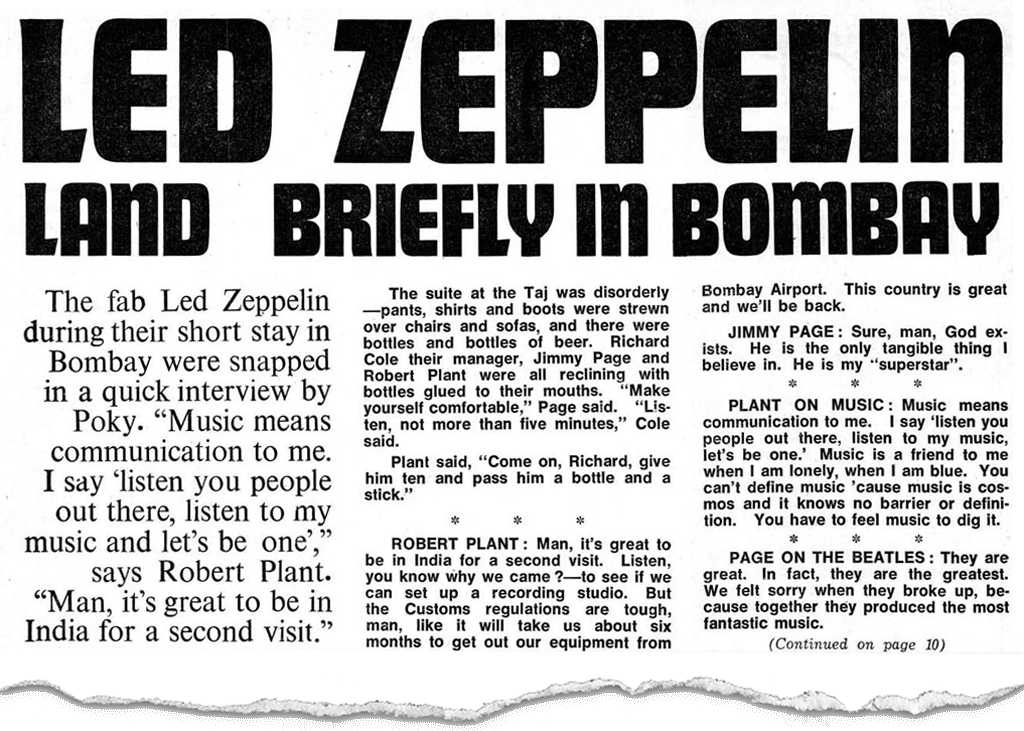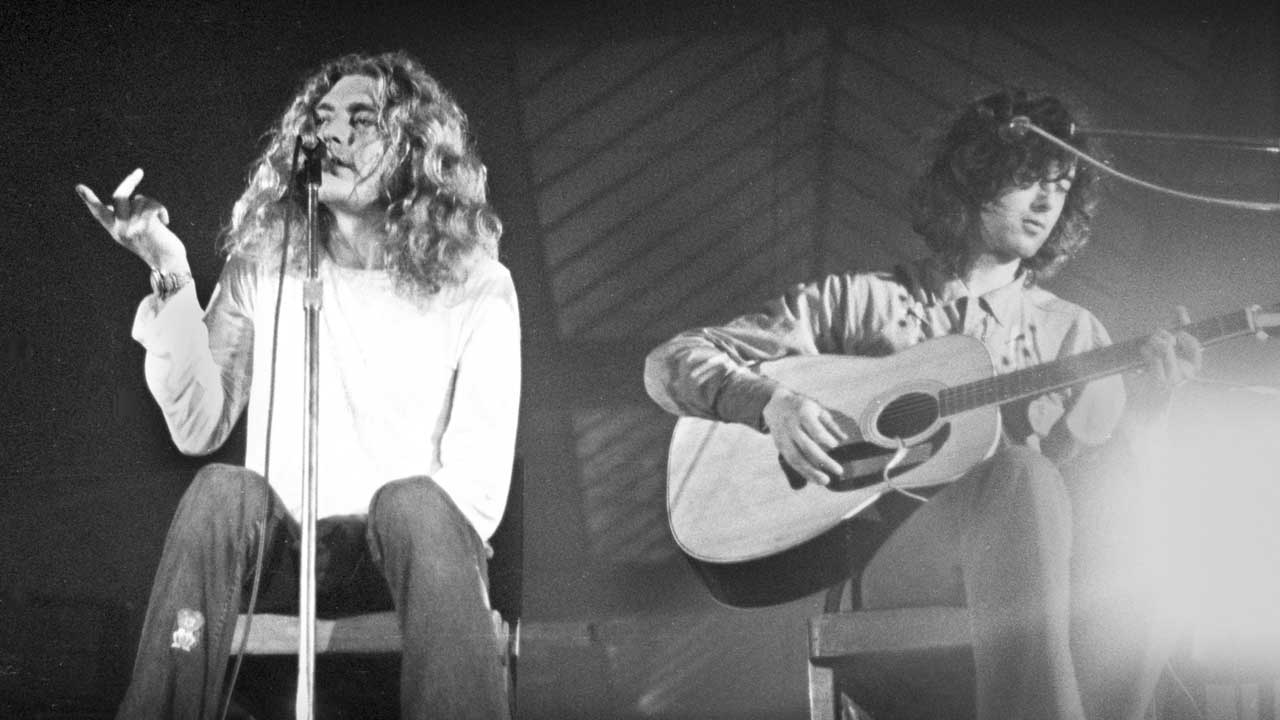Lack of information has only served to amplify the mythical aspect of Led Zeppelin’s three low-key visits to India in the space of 12 months in the early 70s. Jimmy Page and Robert Plant first visited the sprawling city of Bombay on the back of their Japanese tour of September 1971.
A few months later, on their way to play Australia in February ’72, they surreptitiously slipped into the country with tour manager Richard Cole after being denied entry to Singapore because of their long hair and beards. The trio swung around Bombay in a taxi cab, armed with 8mm film cameras.
But the most intriguing of these clandestine trips was the one in October 1972. Following Zeppelin’s six-date tour of Japan, Page, Plant and Cole set up camp in Bombay’s five-star Taj Mahal hotel – and duly played a gig.Their arrival in the country came at a time when Indian rock music was still in its infancy. There were several such bands in Bombay – chief among them being Atomic Forest, Human Bondage and Velvette Fogg – but they were almost wholly in thrall to Western imports.
“In the early 70s there wasn’t much original music sung in English here, only Hindi,” explains Nandu Bhende, the singer with Velvette Fogg. “There was definitely a scene among the college kids in the metros – Bombay, Delhi, Bangalore, Calcutta – but, frankly, we just copied Led Zeppelin. It was much later that we took all those influences and started making our own music.”
Bhende first encountered Page and Plant at the Taj Mahal hotel, where the Led Zeppelin pair were staying on their third trip.
“There was a nightclub downstairs at the Taj hotel where we used to perform as a rock band, and Plant and Page walked into our rehearsal,” he recalls. “I remember Plant sat on the drum set and nearly broke it, because he was hitting it so hard. He was all over the place. He wanted to connect. But Page was very quiet, just sitting around and not communicating too much.I thought they looked quite effeminate, which was really odd to me,because they were so strong in their music and sound. It felt like a macho act, but in real life they weren’t like that at all.”
A few days later, on a Monday night (most likely October 16), Plant and Page gave an impromptu concert at Bombay nightclub Slip Disc, accompanied by two local musicians and primitive stage gear. Bhende was in the audience that night.
“The Slip Disc was really a hole, not a very huge place at all,” he says. “But it was packed. Plant and Page didn’t have any equipment, and hadn’t rehearsed. They just walked out on stage with the two musicians here [Xerxes Gobhai, bassist from Human Bondage, and Jameel Shaikh, drummer with Bhande’s own band, Velvette Fogg]. I remember Page going for a Stratocaster and it being in very bad shape, so he picked up my bandmate’s guitar, an old German thing, and played that instead.They started with Rock And Roll and played for 20 or 25 minutes. There was a long jam at the end, when Plant started talking about Bombay, then they did Black Dog. Plant and Page looked like they were having fun. The crowd went absolutely wild.”
The show was supposedly recorded onto cassette by the club’s resident DJ, Arul Harris, after which it fell into the possession of Atomic Forest’s Keith Kanga. Unfortunately, the tape is now lost, as are definitive memories of the time, although Gobhai recalled also playing Whole Lotta Love. College student and journalist Khalid Mohammed subsequently claimed that Plant and Page sang a previously unheard tune, Kashmir, but Zeppelin experts insist that Kashmir wasn’t written until 1973.
Due to the spontaneous nature of the event, it received scant notice in the press. Some photos of the gig did, however, appear in the November issue of Bombay youth magazine Junior Statesman, accompanied by a brief interview.

“You know why we came?” Plant told the writer. “To see if we could set up a recording studio. But the customs regulations are tough, man. Like, it will take us six months to get our equipment out of Bombay airport.”
That trip also marked the occasion when Plant and Page, the latter armed with a state-of-the-art Stellavox qaudraphonic tape machine, recorded in the studio with a bunch of Indian classical musicians, arranged for them by Ravi Shankar disciple Vijay Raghav Rao.
The result, the much-bootlegged The Bombay Sessions, yielded radically different versions of Friends and Four Sticks, featuring sarangi, sitars and tablas. The ensemble was credited as the Bombay Symphony Orchestra, though Page was less than happy with the quality of the sessions themselves. Once back in England, according to Richard Cole, the Bombay tapes went into storage – though they would finally be released in 2015 as part of the deluxe reissue of Coda. More than 40 years on, nothing can deflect from the monumental cultural impact of Page and Plant’s visit.
“They were idols of ours before they came here,” marvels Bhende, “so we just could not believe that a front-ranking band of that stature could perform in India. None of us could have ever dreamt it was going to happen.”

